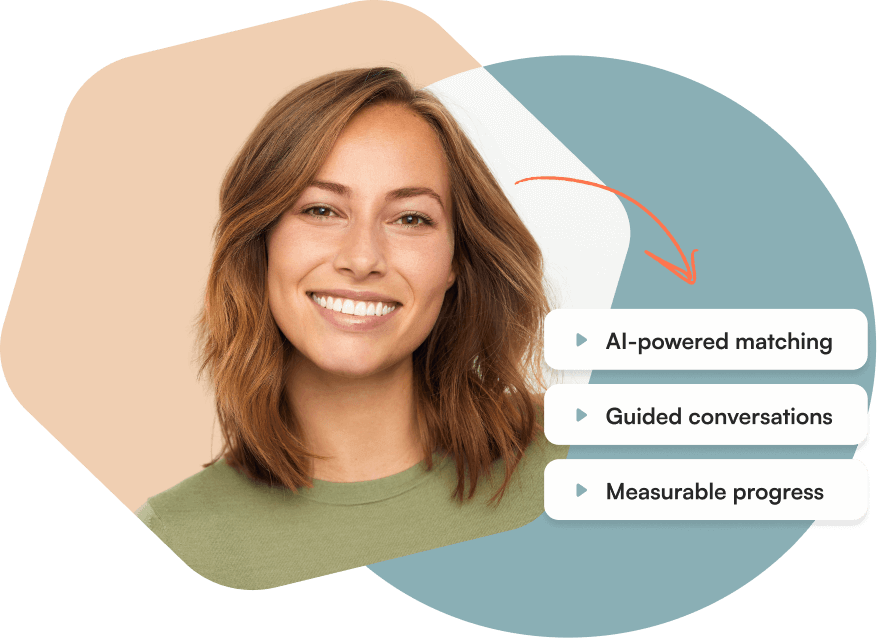Solutions
Accelerate Employee Engagement with Mentoring
When workers aren’t engaged, it can have a serious impact on a company’s culture and performance. See how mentoring can change that.

Research Shows Mentoring Makes All the Difference
Offering workplace mentoring programs is a tried-and-tested way to increase employee engagement. According to a CNBC/SurveyMonkey poll, nine out of 10 workers with a mentor said they were satisfied with their jobs; more than half described themselves as “very satisfied.”
Mentoring contributes to employee engagement in a number of ways, including:
However, operating mentoring programs can be time-consuming and labor-intensive for administrators, especially when they are establishing mentoring for the first time from scratch. Mentoring software from Chronus offers built-in structure and automation to free administrators from manual tasks and ensure mentoring success.
Build connectivity with precision matching
Chronus mentoring software makes it easy to create rich participant profiles and select matching criteria that meet the needs of the organization and participants. AI-powered algorithms pick matches with precision, ensuring the best possible fit between mentors and mentees and creating mutually beneficial relationships.
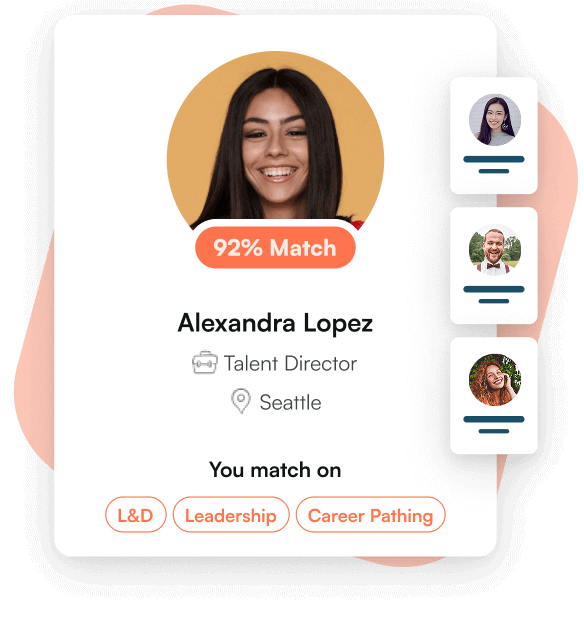
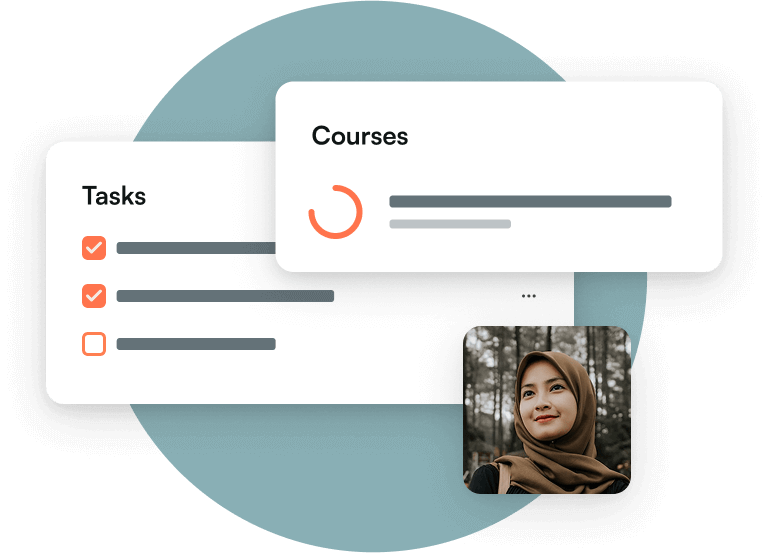
Offer self-paced development
When employees don’t have the right opportunities to develop, they will go elsewhere in search of them. The Chronus platform guides mentees through their development journeys, making it easy to set and pursue individual learning goals. The software makes microlearning accessible and offers participants the freedom to work at their own pace.
Track improvements against organizational goals
Chronus mentoring software enables administrators to easily see how mentoring programs are contributing to key metrics like retention, advancement, skill development and productivity. It also highlights where changes can be made to make mentoring more effective.
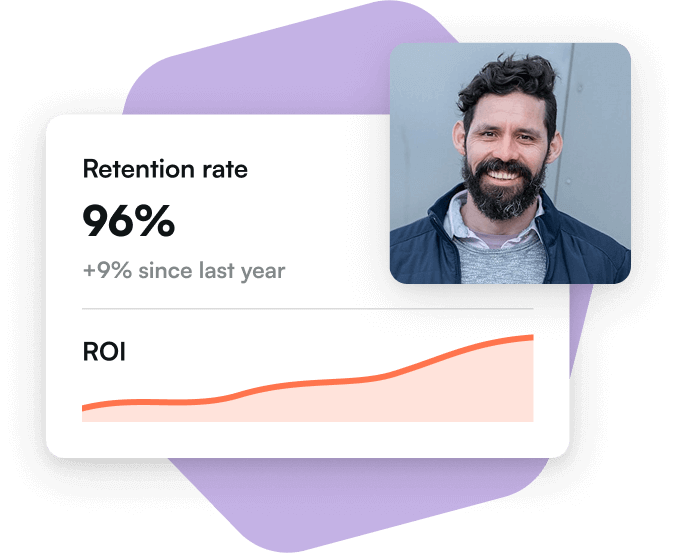
Ready to See Chronus Platform Live?
What Causes Employee Disengagement?
Employees often become disengaged when they feel they lack a larger purpose, meaningful work, future prospects or the feeling that their work is valued.
Why Employee Engagement is Important
Employee engagement strategies makes a big difference in organizational success. When employees are engaged, they are enthusiastic about their work, put more of themselves into their jobs, and are more committed to the organization’s mission and their futures with the company.
1. Improves Productivity
When workers are engaged, they are internally motivated to do their jobs well and to meet personal and company goals. Not only are engaged employees driven to work harder, but they also tend to stay with a company longer, avoiding the disruption in productivity that is often a result of employee turnover.
2. Boosts the Customer Experience
Engaged workers care more about their work, believe in the work they are doing and are happier in their jobs. All of this means they are motivated to provide a great customer experience and work hard to get the skills to deliver. They also have a positive outlook toward their work and customers that naturally results in more positive interactions.
3. Increases Profits
Engaged employees are key to a healthy bottom line. A workplace study by Gallup found that companies with highly engaged employees demonstrate 21% percent higher profitability and outperform their competitors by 147% in earnings per share.
4. Drives Retention
Engaged employees invest in embedding themselves in their work and their work community. And the more embedded employees are in an organization, the more likely they are to stay. Employees who are engaged tend to focus on how they can grow with their current company, rather than thinking about going elsewhere to meet their goals.
Types of Mentoring for Improving Employee Engagement
While mentoring provides clear benefits in growing employee engagement, one size does not always fit all. Mentoring can take a number of forms, depending on the goals of the organization and participants. Here are some of the most common types of mentoring that offer different resources for different needs.
Career Mentoring
Career mentoring is the most traditional and common type. Career mentoring programs match a senior mentor with a less experienced employee to offer support in career development. Mentors may help set career goals, teach new skills, offer advice for navigating challenges, and much more. Most importantly, they should be a trusted resource that the mentee can turn to when they need help in advancing their career.
Mentoring Circles
Mentoring circles are peer-to-peer mentoring groups that enable employees who share common interests or learning objectives to learn and develop together as a group. This type of mentoring facilitates collaborative learning and knowledge sharing, drives career development by building employees’ skills and expertise and encourages meaningful relationships across the organization. Since mentoring circles are generally run by employees, they require less organizational administration.
Buddy Programs
In buddy programs, new hires are paired with experienced employees who can offer them help in onboarding into the organization. Considering that 22 percent of staff turnover happens in the first 45 days on the job, offering new employees this kind of personal resource is a smart move toward increasing their engagement and boosting retention.
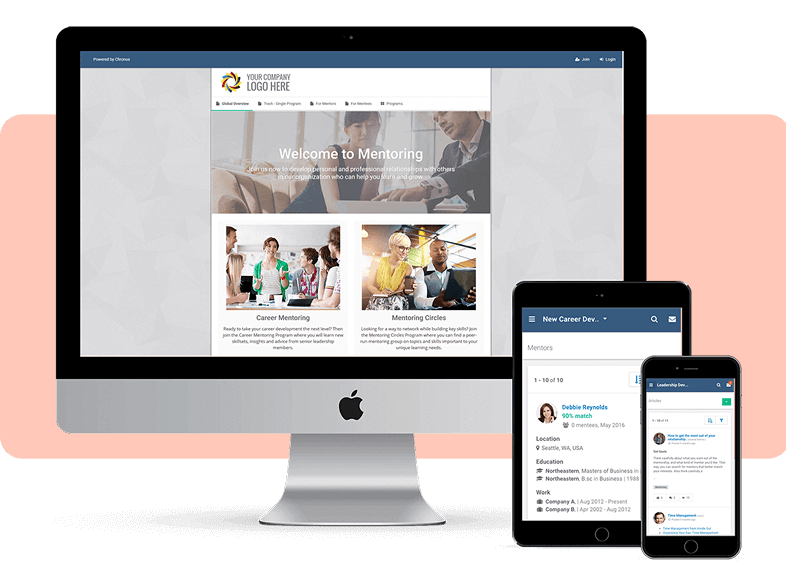
Start Increasing Employee Engagement with Chronus Mentoring Software
Mentoring boosts engagement by helping employees plan and build career paths they care about, develop relationships with the company, and receive the help they need to overcome challenges—all especially relevant to combat “quiet quitting” and empower employees to live up to their potential.
Chronus can take the heavy lifting out of creating and operating a successful mentoring program. The Chronus platform comes with structures and templates built in, but with enough flexibility to fit your organization’s current and future needs. Our AI matching algorithm ensures you pair the right people in mentoring relationships, and we provide the most granular, analytical reporting in the industry so that you can measure your mentoring outcomes and improve over time.
By automating your mentoring program with Chronus, you’ll be able to maximize mentoring success, minimize administration time and trouble, and help foster an environment of employee engagement.
Reduce admin effort and time with software
